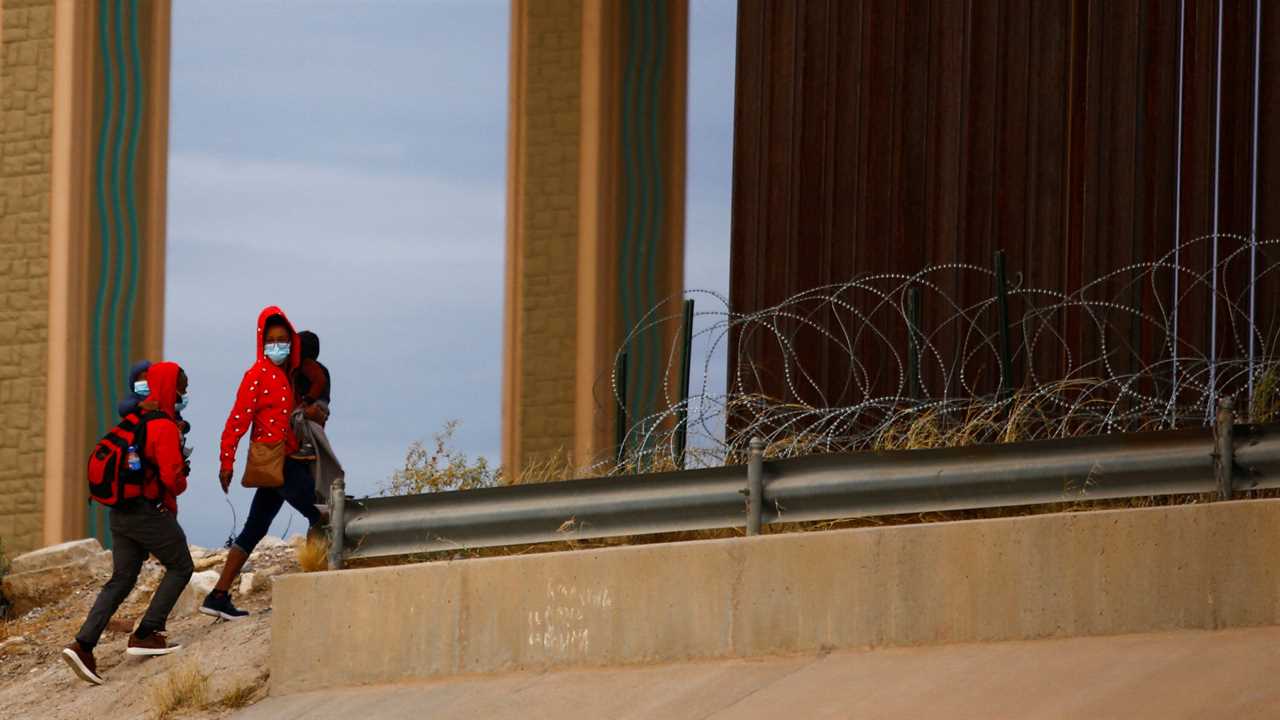
WASHINGTON — The Supreme Court agreed on Friday to decide whether the Biden administration can end a Trump-era immigration program that forces asylum seekers arriving at the southwestern border to await approval in Mexico.
The court put the case on a fast track, scheduling arguments for April. A decision will probably arrive by the end of the court’s current term in late June or early July.
The challenged program, known commonly as Remain in Mexico and formally as the Migrant Protection Protocols, applies to people who left a third country and traveled through Mexico to reach the U.S. border. After the policy was put in place at the beginning of 2019, tens of thousands of people waited in unsanitary tent encampments for immigration hearings. There have been widespread reports of sexual assault, kidnapping and torture.
Soon after he took office, President Biden sought to end the program. Texas and Missouri sued, saying they had been injured by the termination by having to provide government services like drivers’ licenses to immigrants allowed into the United States.
Last August, Judge Matthew J. Kacsmaryk of the U.S. District Court for the Northern District of Texas, in Amarillo, ruled that a federal law required returning noncitizens seeking asylum to Mexico whenever the government lacked the resources to detain them.
The Biden administration promptly asked the Supreme Court to intervene, but it refused to block Judge Kacsmaryk’s ruling, which required it to restart the program. The three more liberal justices dissented.
The court’s brief unsigned order at the time said that the administration had appeared to have acted arbitrarily and capriciously in rescinding the program, citing a 2020 decision that had refused to let the Trump administration immediately rescind an Obama-era program protecting the young immigrants known as Dreamers.
The Biden administration then took steps to restart the program and issued a new decision seeking to end it. Administration officials, responding to criticism that they had acted hastily, released a 38-page memorandum setting out their reasoning.
They concluded that the program’s costs outweighed its benefits. Among those costs, the memo said, were the dangerous conditions in Mexico, the difficulty immigrants faced in conferring with lawyers across the border and the ways in which the program undermined the administration’s foreign-policy objectives and domestic-policy initiatives.
A three-judge panel of the U.S. Court of Appeals for the Fifth Circuit, in New Orleans, rejected the administration’s plan to shut down the program.
“The government says it has unreviewable and unilateral discretion to create and to eliminate entire components of the federal bureaucracy that affect countless people, tax dollars and sovereign states,” Judge Andrew S. Oldham wrote for the panel. “The government also says it has unreviewable and unilateral discretion to ignore statutory limits imposed by Congress.”
“And the government says it can do all of this by typing up a new ‘memo’ and posting it on the internet,” he added. “If the government were correct, it would supplant the rule of law with the rule of say-so. We hold the government is wrong.”
Elizabeth B. Prelogar, the solicitor general, told the justices that the appeals court’s decision amounted to unwarranted interference with the president’s power over foreign affairs.
“The injunction is compelling the executive branch to maintain a controversial policy that” officials have “determined is contrary to the interests of the United States; to divert resources from other critical priorities; and to engage in ongoing coordination with Mexico,” she wrote. “That continuing intrusion on the executive’s constitutional and statutory authority to manage the border and conduct the nation’s foreign policy warrants immediate review.”
Lawyers for Texas and Missouri told the justices that the program was an effective tool to protect the nation’s borders and that the administration had not followed lawful procedures in its attempt to rescind it.






